
Finding My Tribe–For the Fourth Time
Last weekend, I found my tribe.
I know I have to be careful using the word tribe. It can carry all sorts of negative stereotypes we should all try to avoid.
However, it can also be used in a positive, albeit colloquial, way to convey a sense of community and a whole lot of other positives that we all seek.
So, it is in that sense that I found my tribe last weekend.
For the fourth time in my life.
I attended (virtually) the Zebras Unite Dazzle Camp (see below) which led to a personal breakthrough because the short time I spent there combined everything I had taken away from my first three tribes, each of which I still feel a part of. A commitment to radical social change. Grounding those ambitious goals in reality. Taking on serious topics with a sense of humor. Doing so by forging healthy relationships among the tribe members.
While I want to focus on Tribe #4, I had to reassess my engagement with—and some of my frustrations with—the other three. I won’t bore you with the details, just a few high points that have carried over to what will be the next phase of my life. They are also worth mentioning, too, because this fourth one brings them all together in ways I never expected, because I had been stumbling around, looking for something like the Zebras Unite and all they represent for the last fifty years. I say “stumbling,” because the search was anything but systematic, but there were touchstones in each of the first three that both left me dissatisfied but also pointed me (through a series of not quite random zig zags) toward where I am today.
The New Left
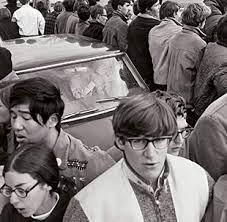 I was part of the new left even before I started college in 1965. In fact, I chose Oberlin because of its role in social justice movements since its foundation in 1833 and sought out other activists the minute I arrived on campus, some of whom are among my closest friends to this day. They were my first tribe. Civil rights led many of us to Oberlin in the first place given its history as the first college to admit women and Blacks that dates back to its founding in 1833. During my time there and in grad school at Michigan, we focussed on the Vietnam war but many of us got interested in the broader dimensions of social change.
I was part of the new left even before I started college in 1965. In fact, I chose Oberlin because of its role in social justice movements since its foundation in 1833 and sought out other activists the minute I arrived on campus, some of whom are among my closest friends to this day. They were my first tribe. Civil rights led many of us to Oberlin in the first place given its history as the first college to admit women and Blacks that dates back to its founding in 1833. During my time there and in grad school at Michigan, we focussed on the Vietnam war but many of us got interested in the broader dimensions of social change.
In my case, the commitment to broad social justice issues took off when my PhD advisor suggested that I do my thesis (and first book) on the French Unified Socialist Party (PSU) rather than a grandiose project on the history of the left. I remember his asking me if I wanted to finish before the end of the century. It was 1972….
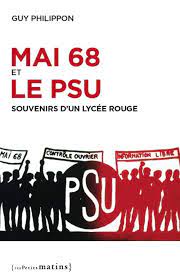 More than I realized at the time, Roy Pierce shared my interest in redefining left and figured the PSU would help my friends and me. At the time, it had emerged from the protests of 1968 as one of the few new left movements that had significant working class support and at times won as much as five percent of the national vote. I spent the academic year, 1972-1973, doing participant observation research on its grassroots activists. Although I turned that research into a scholarly tome filled with regression equations, the PSU was my first true tribe because it introduced me to what we would now call a systematic theory of change that revolved around decentralized and democratically managed socialism. Even more importantly, I found the hundreds of activists I spent time with that year, kindred souls who took me beyond the campus-based activism in Oberlin and Ann Arbor.
More than I realized at the time, Roy Pierce shared my interest in redefining left and figured the PSU would help my friends and me. At the time, it had emerged from the protests of 1968 as one of the few new left movements that had significant working class support and at times won as much as five percent of the national vote. I spent the academic year, 1972-1973, doing participant observation research on its grassroots activists. Although I turned that research into a scholarly tome filled with regression equations, the PSU was my first true tribe because it introduced me to what we would now call a systematic theory of change that revolved around decentralized and democratically managed socialism. Even more importantly, I found the hundreds of activists I spent time with that year, kindred souls who took me beyond the campus-based activism in Oberlin and Ann Arbor.
Political Science
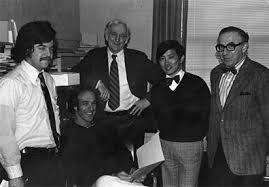 My second tribe may not make a lot of sense given where I am today. Nonetheless, I followed the path of least resistance at a graduate program like Michigan’s by preparing myself for an academic career and ended up teaching for seventeen years at Colby College which was a more conservative version of Oberlin. Coincidentally, an out-of-the blue email from a student from my early days there got me thinking about how I found a tribe with my students and, to a slightly lesser degree, with my colleagues at Colby, and, to a much lesser degree, my fellow political scientists.
My second tribe may not make a lot of sense given where I am today. Nonetheless, I followed the path of least resistance at a graduate program like Michigan’s by preparing myself for an academic career and ended up teaching for seventeen years at Colby College which was a more conservative version of Oberlin. Coincidentally, an out-of-the blue email from a student from my early days there got me thinking about how I found a tribe with my students and, to a slightly lesser degree, with my colleagues at Colby, and, to a much lesser degree, my fellow political scientists.
Despite my self-doubts and the political differences from Oberlin, I fit in right away. The first student I met had been my camper when I was a counselor a decade earlier. Another early student grew up in my neighborhood and his parents and mine were friends. I loved teaching and working with colleagues in a variety of disciplines. How could I complain when I got to teach courses in French and was allowed to organize a first-year seminar on paradigm shifts?
In this case, though, I outgrew my tribe. As you are about to see, I rediscovered my political roots which meant that I no longer had much in common with my fellow political scientists who were focused on strengthening our academic field. Still, much of what I learned in those years—including how to write for lay audiences and how to conduct rigorous but interdisciplinary research still draws me back toward academic life more than I usually acknowledge. I also moved to George Mason University, and although I loved the classroom experience even more because my students had such different backgrounds, I rarely got to know my students well.
In short, no tribe in the classroom either.
Peacebuilding
Late in my time at Colby, I simultaneously discovered peacebuilding and found an activist outlet which sped up my move out of academics and toward a new and more satisfying tribe l. With Beyond War (then) and the Alliance for Peacebuilding (now) and dozens of other groups in between, I found people who shared my interest in paradigm shifts, cooperative problem solving, and the like. While few of my new friends are academics, I found myself having the kinds of wide-ranging, creative discussions which I assumed would be part of academic life, but which I found sorely lacking, especially as I got sucked deeper into the publish-or-perish world.
Yet again, however, I found myself a bit frustrated, ironically, because the job AfP asked me to take on helped me see my new tribe’s limitation. Melanie Greenberg and Liz Hume created a title for me—senior fellow for innovation—without a job description, which meant that I had to create it. I defined it so that I could be something like a one-person version of what John Hagel and John Seely Brown call an edge lab. I would position myself at the “edge” of my own field and look outward for ideas that could then be brought back and adapted for use by my fellow peacebuilders.
As I did that work, I also began to see the limits that are built in to any field that focuses on a single problem, whether that is peacebuilding or anything else. We live in an era of wicked problems whose causes and consequences are so inextricably intertwined that the have to tackle them all together at more or less the same time.
Needless to say, left me frustrated because my friends and I rarely gave those other problems their due. We talked about them and acknowledged their importance. We often included them in the projects we were involved in around the world—from Burundi to Baltimore as I often put it.
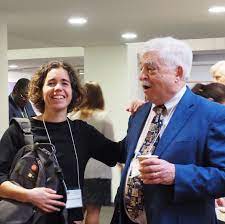 But we always kept peacebuilding on center stage. That shouldn’t be surprising. After all, that is what we do.
But we always kept peacebuilding on center stage. That shouldn’t be surprising. After all, that is what we do.
Still, I wanted more.
That lurking frustration grew exponentially in 2020 when we found ourselves having to deal with multiple overlapping crises, including the pandemic, systemic racism, threats to democracy, recession, climate change, and more.
I had no intention of giving up peacebuilding (or, for that matter political science), but I wanted more.
Zebras Unite and Dot Connecting
So, I began thinking in terms of “connecting the dots” or bringing together individuals and organizations who focus on addressing one or more of those issues but would be a hell of a lot more effective if they found ways of working with each other across issue-based and ideological lines.
Although they added metaphoric stripes that clashed with my dots, meeting Zebras Unite led me to a fourth tribe that takes the intersectionality of the problems we face seriously and puts it far closer to the heart of what they do in their dazzles (yes, zebras do gather in dazzles) than anyone else I know about.
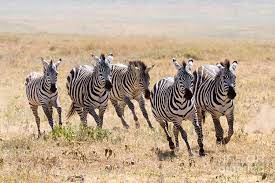 The Zebras are not pulling me away from peacebuilding. I have too much invested in something I truly believe in to do that. However, they add something that was missing from my peacebuilding life, and I’ll be doing what I can to merge the two.
The Zebras are not pulling me away from peacebuilding. I have too much invested in something I truly believe in to do that. However, they add something that was missing from my peacebuilding life, and I’ll be doing what I can to merge the two.
Because I’ve written about the Zebras themselves before, I’m not going to talk about what they do here. Instead, I want to focus on how they work and why they made me feel politically and personally at home enough that I consider myself part of their tribe—and vice versa.
As was the case with my other three tribes (with the possible exception of political science), that sense of belonging is far more emotional than intellectual. In fact, that was true from the moment I first learned about the Zebras in a podcast that featured two of its founding doulas, Mara Zepeda and Jenn Brandel.
They seemed dead serious about changing the economy in easy that brought me back to my roots in the PSU. But the fact that they called themselves doulas and zebras suggested that they also didn’t take themselves too seriously and that they wanted to have some fun while changing the world. And as I have gotten to know two of its leaders, Mara Zepeda and Kate “Sassy” Sassoon better, I’ve seen that they take something seriously that is even more important to me.
Which takes me back to my third tribe.
I spend a sabbatical year in the late 1980s on the national staff of the Beyond War movement. One day, after particularly unproductive meeting, my mentor pulled aside and said something like:
Chip, you tend to put the task you’re working on ahead of the relationships. Try flipping the order. Put the relationship first. It may take longer to get to the task, but once you do, it will flow a lot better.
I’ve taken Ginny’s message to heart and tried to build my professional life around her words ever since. I haven’t always succeeded, but when I remember to put the relationships first, things tend to work out pretty well.
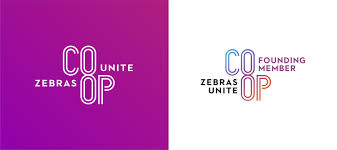 What’s relevant here is that Mara, Jenn, Sassy, and the other Zebras get it. I see it in the way they have intentionally set out to create a series of organizations that live the Zebra values in everything they do in which they literally walk their talk. I saw it, too, in the way they ran last weekend, especially in the part of it I wasn’t able to attend, as I learned in a debrief they held a few days later.
What’s relevant here is that Mara, Jenn, Sassy, and the other Zebras get it. I see it in the way they have intentionally set out to create a series of organizations that live the Zebra values in everything they do in which they literally walk their talk. I saw it, too, in the way they ran last weekend, especially in the part of it I wasn’t able to attend, as I learned in a debrief they held a few days later.
They know that they are creating something that has never existed before that will go beyond the economic issues that initially led them to creat the Zebras because they will have to meet the needs of a wide variety of people who have decided to don a zebra’s stripes, ranging from a real doula with an MBA who has a startup to improve the quality of prenatal care in underserved communities to a hip, cool entrepreneur who have put on music festivals for years, to a woman who helped a major Canadian bank develop wellness programs in an earlier phase in her career.
If they are going to build the intersectional movement they envision, they are going to have to integrate the people who come to it around common goals. And that will require creating safe spaces in which we can share our different pasts, our different hopes, our different fears, and somehow build a strategy for building a common and better feature.
Our very diversity requires putting the relationships among us first. Mara, Sassy, and the rest of the team that organized the dazzle camp understood that by building in time for people to create together, starting with designing their own name tags. They made it clear that disagreeing was fine; after all, they had disagreed plenty in putting the program together, including when they had to change its focus and format several times given the changing nature of the COVID crisis.
There are ways in which I don’t fit into this tribe. I am, of course, the oldest person in the room. We don’t listen to the same music (at least most of the time) or watch the same media. I don’t snap my fingers when I think something is cool. I could add more to the list.
But, I have found a new home. This is my newest community.
More than anyone, they are the people who convinced me that I need to connect the dots and bring peacebuilders, climate change activists, the leaders of socially responsible startups, racial and social justice advocates, and more together so that we can begin changing the world together.
None of these individuals and the organizations they are part of could or should abandon the work that they are doing in their own silos. My hope is that they will join this new tribe of folks who intentionally work on intersectional issues (aka wicked problems) in ways that values and empowers every participant the way that the members of my various tribes have empowered me in each of my silos over the years.
Curiously, the Zebras clicked for me because many of their analyses and inspirations come from the very people who got me interested in the PSU in those days before my hair color got challenged and before I had ever set foot in a classroom. I feel the same energy and inspiration that I did when I went to my first PSU meeting in 1972 and was welcomed with open arms or when Mark tapped me on the shoulder after my first class and asked, “weren’t you my camp counselor when I was nine?”
Next Steps
Finding my new tribe also leaves me with an even bigger version of the qualms I felt at those times. Who am I to be taking on this kind of a challenge?
Now, it isn’t simply working with a small political party that was already in its death throes or working with two hundred students a year at an elitist liberal arts college. The challenges are much bigger and much more humbling.
The email from Kim from Colby yesterday got me thinking about how a metaphor I used then can keep me grounded as I try to build this Connecting the Dots Community. I used to say that I tried to stay “one step ahead” of each of my students. Like a local peacebuilder in the 2020s, my job was primarily to accompany the students—the “dots” of my second tribe—on their journeys. In those days, the value I added came in suggesting new ideas or initiatives they could try that would help them speed up and expand that journey wherever that led them. I tried to offer them new intellectual, personal, and/or professional goals that they may not have been aware of, and help them discover ways of integrating them into their journeys—or reject them altogether as was often the case.
Now, my challenge is to do the same on a much larger and more diverse stage.
It will be a fun and humbling challenge to take that on with members of all of my tribes, knowing full well that the challenge isn’t simply to help young people who were already likely to succeed to accomplish even more. Instead, my new job is to help social change activists succeed in facing problems that threaten to tear this country and, perhaps, civilization itself apart.
I only know two things.
I’ve laid out a daunting challenge that I know I will not be able to meet on my own.
Figuring out how to do my part will be a lot of fun.
The views and opinions expressed in this article are those of the author and do not necessarily reflect the official policy or position of the Alliance for Peacebuilding or its members.
Also published on Medium.
